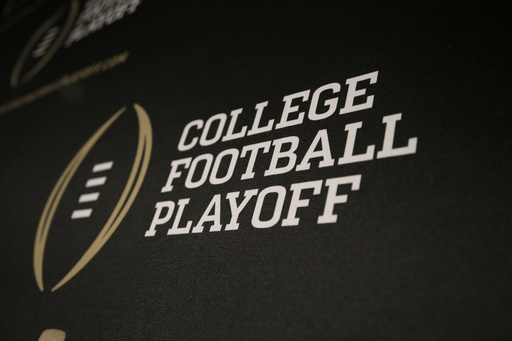
The executive director of the newly structured 12-team College Football Playoff has confirmed widely held beliefs regarding the selection criteria for the playoff bracket. It will be crucial to consider not only the number of wins and the traditional “eye test,” but also the strength of schedule, as this could significantly influence the decisions made by the selection committee.
Rich Clark held a press conference with reporters on Wednesday to detail the process for determining the playoff bracket. The inaugural list of the committee’s weekly top 25 rankings will be released on Tuesday, with the final bracket set to be announced on December 8.
“Winning records are important, but instead of selecting the most deserving teams, our goal is to identify the best teams,” Clark stated, an assertion likely to be analyzed in depth as the season progresses. “This committee will evaluate the entire performance of each team, taking into account their records. However, they will also review strength of schedule, direct competition outcomes, and various other relevant factors.”
Last season, the committee faced backlash for its choice to include Alabama, which had one loss, over Florida State, which was undefeated, in the four-team playoff format. Despite the expanded format now offering automatic berths to the top five conference champions, it remains likely that this year’s choices will face scrutiny.
A new challenge this year arises from the SEC, Big Ten, and Big 12 eliminating divisions. This change is the result of conference realignment and is intended to allow teams to face all conference opponents over several years.
With the formation of 16- and 18-member conferences, it is uncertain whether top teams will compete against one another. For instance, No. 13 Indiana (8-0) will not contend with fellow Big Ten undefeated teams No. 1 Oregon and No. 3 Penn State during the regular season. Similarly, No. 9 BYU (8-0) has no scheduled games against nearby rivals No. 11 Iowa State and No. 23 Colorado in the Big 12.
Clark emphasized the importance of the strength of schedule, which will be assessed by the analytics company SportSource Analytics, as a method for the selection committee to gauge which teams are genuinely superior, particularly when evaluating closely matched teams.
“This approach enables us to assess teams more fairly,” Clark explained. “When a team dominates an easy schedule, it becomes difficult to rank them against another team that may have lost a couple of games but faced a significantly more challenging slate.”
Here’s a summary of how the 12-team bracket will function:
– The selection committee will release weekly top 25 rankings starting Tuesday, with the final list determining playoff positions to be unveiled after the December 7 conference title games.
– The top four conference champions, regardless of rankings, will each receive a first-round bye. The next highest-ranked conference champion will gain a place in the bracket even if it falls outside the top 12.
– The opening playoff round for teams seeded 5-12 will occur on college campuses on December 20-21, with the championship game scheduled for January 20 in Atlanta.
While the selection committee will not align with the AP Top 25 or other polls in its rankings, for illustrative purposes, here’s a hypothetical playoff scenario based on the current AP rankings, assuming all higher-seeded teams claim their conference titles:
– 5 vs. 12: Boise State at Penn State (Boise State could qualify as the fifth-best conference champion despite being ranked 15)
– 6 vs. 11: Clemson at Ohio State (The Buckeyes triumphed over the Tigers 49-28 in the semifinals in 2021)
– 7 vs. 10: Texas A&M at Texas (These teams will play one another on November 30 in the regular season; however, bracketing regulations would still allow for a rematch)
– 8 vs. 9: Notre Dame at Tennessee (The Fighting Irish are working to recover from a previous loss to Northern Illinois in the AP poll; it remains to be seen if the committee will also overlook this.)
Byes would presumably go to:
1. Oregon (quarterfinal match at the Rose Bowl)
2. Georgia (quarterfinal at the Sugar Bowl)
3. Miami (Peach Bowl)
4. BYU (Fiesta Bowl)
